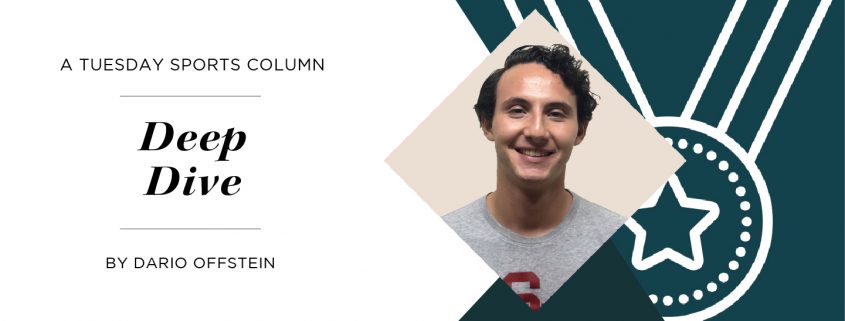Deep Dive: The Astros have a slight edge over the Nationals
The World Series is here, folks!
After a long regular season punctuated by some exciting playoff series, the field is down to two teams: the Washington Nationals and the Houston Astros.
At first glance, this matchup seems to have a clear favorite and underdog. Houston won 107 out of 162 games during the regular season, compared to Washington’s 93 victories. The Nationals are a Wild Card team that has been fighting to keep its season alive for weeks, while the Astros have been World-Series-or-bust all season. But the story isn’t quite so simple.
Let’s go back to May 23. The Nationals were off to a terrible start, with a 19-31 record. Many fans were prepared to throw in the towel, sell at the trade deadline and start crossing their fingers for 2020. The Astros, on the other hand, were already 15 games over .500 and had all but secured a playoff spot in October. After May 23, though, the Astros went 73-37 and the Nationals played just as well, with a record of 74-38. In other words, this is a matchup between two teams that have been dominating their competition and deserve to be in the World Series.
Let’s begin by looking at each team’s starting pitchers. Both teams boast three starters with a Rolling Game Score above 56, according to FiveThirtyEight. This statistic measures the quality of a starting pitcher on a scale from 0-100 by predicting how they would fare in a “typical start.” A score of 50 is considered average. These two teams are the only ones in the league with three starters over 56, so we are in for a treat. Those numbers don’t even count Nationals pitcher Anibal Sanchez, who threw five no-hit innings in Game 2 against the Cardinals.
The Astros’ trio of aces consists of Gerrit Cole, Justin Verlander and Zach Greinke, all of whom have been the best pitcher in baseball at some point in their career and were acquired by the Astros via trades. Cole led the league this season with an absurd 13.8 strikeouts per nine innings pitched. Earlier in the postseason, he broke the record for most consecutive innings with a strikeout at 73. Verlander led all pitchers in wins above replacement, an overall value statistic calculated by Baseball Reference. Greinke is among the best in the league at avoiding hard contact — his exit velocity of only 86.8 mph is the lowest of the Astros’ three aces. The Nationals batters will certainly have their hands full with this trio at the mound.
On the Nationals’ side of things, pitchers Max Scherzer and Stephen Strasburg are bona fide aces, and Patrick Corbin sure did pitch like one in 2019. All three are top 10 in the league in strikeouts this season, finishing with 243, 251 and 238, respectively. This is particularly remarkable for Scherzer, who missed a couple of weeks in July and August with a back injury. Strasburg and Scherzer are also both above the 90th percentile in xSLG, a statistic that calculates the expected slugging percentage allowed by a pitcher based on the exit velocities and launch angles of the hitter. Overall, I expect the starting pitching to be exceptional from both teams this series, with a slight edge to the Astros.
At the plate, both teams have multiple studs who present many problems. The Astros boast big-name players like infielders Alex Bregman, Carlos Correa and Jose Altuve and outfielder George Springer. Bregman has made a strong case for American League MVP this season, leading the AL in WAR for position players and coming in second only to Angels’ outfielder Mike Trout in on-base percentage. Springer almost single-handedly won the World Series for the Astros when they beat the Dodgers in 2017 (No, I’m not over it — thanks for asking).
Outfielder Yordan Alvarez has been crushing it since he was called up from the minors midseason, with an xSLG in the 98th percentile.
The Nationals have outfielder Juan Soto and infielder Anthony Rendon, who have carried the team on their backs for most of the season. Soto is one of baseball’s best young stars; he’s put up two of the best seasons ever by a 19- and 20-year old over the past two years. Rendon has long been one of baseball’s underrated talents, as he excels in practically every category at the plate and on defense. These two stars will get their chances to shine on baseball’s biggest stage.
Other contributors for the Nationals this year have been infielder Howie Kendrick, outfielder Adam Eaton and infielder Trea Turner. I’m afraid the edge at the plate still goes to the Astros, although once again it is only a slight edge.
Coming out of the bullpen, Houston has had better relief than Washington during both the regular season and the playoffs. Ryan Pressly and Roberto Osuna are the Astros’ key relievers, but Pressly has struggled in the postseason. The Astros have great bullpen depth, though.
The Nationals’ best relievers are Sean Doolittle, Fernando Rodney and Daniel Hudson, who have all been solid through the postseason. Rodney has not allowed a run in the playoffs, but his WHIP of 1.615 in 2019 suggests he lacks consistency. It appears as though the battle of the bullpens slightly favors Houston.
Houston has a more well-rounded roster than Washington, with an advantage in nearly every aspect of the game. I predict the series will be decided by the starting pitching — if Houston can get to Strasburg or Scherzer, it should be able to take care of business, but it will be in trouble if the Nationals are able to put up runs on Cole or Verlander. Logically, the Astros should win in as few as five games, but I’ll be rooting for the Nationals to take it in seven.
Dario Offstein is a junior writing about sports. His column, “Deep Dive,” runs every other Tuesday.

